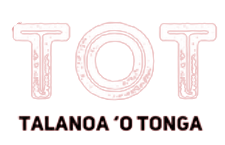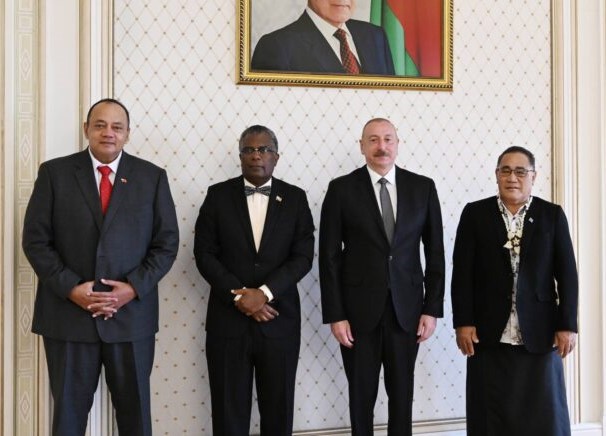As the global community approaches COP29, scheduled to take place from Monday, 11 November to Friday, 22 November 2024, the fate of Small Island Developing States (SIDS) hangs in a precarious balance. These nations, which have long borne the brunt of the escalating impacts of climate change, now face an existential threat that demands immediate and decisive global action. The Baku Communiqué, signed in May 2024, underscores the critical necessity for COP29 to address the unique challenges confronting SIDS. Failure to act decisively at this juncture may result in irreversible consequences for these vulnerable states.
Legacy of Deep Solidarity
Azerbaijan has consistently demonstrated its unwavering commitment to the cause of SIDS, a commitment that was prominently evident during its chairmanship of the Non-Aligned Movement (NAM) from 2019 to 2023. “Azerbaijan has always been in solidarity with the Small Island Developing States (SIDS) and promoted their legitimate interests and concerns,” declared President Ilham Aliyev during his address at the 4th International Conference on Small Island Developing States, “Charting the Course Toward Resilient Prosperity,” held in Antigua and Barbuda.
President Aliyev further articulated this commitment, noting, “During the 4-year-long Azerbaijani Chairmanship to the Non-Aligned Movement (NAM), we spared no effort to advance the Movement’s agenda. Leading the NAM allowed Azerbaijan to gain a deeper understanding of the needs and concerns of all its Member States, including SIDS.” These remarks highlight Azerbaijan’s profound understanding of the disproportionate impact that climate change has on SIDS and its steadfast determination to ensure that their voices are amplified on the global stage.
This deep solidarity was further manifested during a roundtable dialogue on SIDS priorities for COP29, convened by Azerbaijan in Baku on May 15, 2024. This pivotal meeting brought together prominent leaders from SIDS, including The Hon. Frederick A. Mitchell, M.P., Minister of Foreign Affairs of the Commonwealth of The Bahamas, and H.E. Rev Sir Tofinga Vaevalu Falani, Governor General of Tuvalu. The discussions centered on critical issues such as the operationalization of the Loss and Damage Fund, the establishment of a New Collective Quantified Goal on Climate Finance (NCQG), and the imperative of a just transition to clean energy.
The Baku Communiqué: A Diplomatic Call for Urgent Action
The Baku Communiqué, signed by representatives from Tuvalu, Tonga, The Bahamas, and Azerbaijan, is a landmark document that calls upon COP29 to serve as a decisive platform for addressing the severe challenges facing SIDS. The communiqué acknowledges the existential threats posed by climate change to SIDS, including rising sea levels, increasingly extreme weather events, and the erosion of cultural heritage. It calls for a concerted global effort to address these challenges, with a particular emphasis on COP29.
Central to the communiqué is the emphasis on the need for adequate and accessible climate finance. The document advocates for the operationalization of the Loss and Damage Fund, a crucial mechanism for supporting countries already suffering from the devastating impacts of climate change. Additionally, it calls for the establishment of a robust NCQG on finance, ensuring that SIDS have the necessary resources to bolster their resilience and adapt to the rapidly changing climate.
In a tangible demonstration of its commitment to these pressing issues, Azerbaijan allocated USD 10 million immediately prior to COP29, in collaboration with The Commonwealth and with the assistance of The Rt Hon Patricia Scotland, the Baroness of Scotland of Asthal, Commonwealth Secretary General. This significant financial contribution underscores Azerbaijan’s profound understanding of the needs of SIDS and its dedication to ensuring that their concerns are prioritized within the global climate agenda, reinforcing its leadership in fostering international cooperation.
Further underscoring its commitment, a significant signing ceremony will take place at the Pacific Forum in Tonga, attended by COP29 President-Designate Mukhtar Babayev. This event marks another important milestone in the lead-up to COP29, solidifying the collaborative efforts between Azerbaijan and the SIDS.
Adding to the challenge, Azerbaijan faces the shortest preparation time for a COP, making its efforts more commendable. Despite this compressed timeline, Azerbaijan has demonstrated exceptional dedication and capability in organizing and leading this critical global event.
The Baku Communiqué also underscores the importance of a just and equitable transition to clean energy, essential to maintaining the global temperature rise within 1.5°C—a critical threshold for the survival of SIDS. The communiqué calls for COP29 to be an inclusive and transparent platform where the voices of all nations, especially the most vulnerable, are not only heard but heeded.
The Stakes Have Never Been Higher
The stakes for SIDS at COP29 could not be more profound. These nations are on the frontlines of climate change, enduring its devastating impacts with alarming frequency and intensity. Rising sea levels threaten to engulf entire islands, while increasingly severe storms and other extreme weather events wreak havoc on their communities and economies. For SIDS, climate change is not a distant or abstract threat—it is an immediate and escalating crisis that demands urgent global action.
As Foreign Minister Mitchell of The Bahamas emphasized during bilateral discussions with Azerbaijan’s COP29 team, addressing climate change is the foremost foreign policy priority for The Bahamas, and it should be for the entire world. The catastrophic effects of climate change, including coastal erosion and hurricanes like Dorian—which unleashed devastating sea surges on Grand Bahama—are stark reminders of what is at stake.
The Baku Communiqué is more than a diplomatic declaration—it is a blueprint for action. It calls upon the international community to recognize the urgent needs of SIDS and to take concrete, decisive steps at COP29 to ensure their survival. This includes making climate finance readily available, operationalizing the Loss and Damage Fund, and committing to a global effort to keep temperature rises within the critical threshold of 1.5°C.
The tireless efforts of individuals such as myself as Special Envoy of Vanuatu to COP29, Ambassador Nair of Tuvalu, and one of the leading Baku-based NGO TGID, have been instrumental in elevating these issues to the forefront of the COP29 agenda. Our dedication has ensured that the concerns of SIDS are not merely included but are central to the discussions and decisions that will shape the future of global climate action.
Conclusion: COP29 Must Deliver
COP29 stands as a pivotal moment for SIDS and for the global community. The decisions taken at this conference will determine whether these vulnerable nations can continue to exist or whether they will become casualties of climate inaction. The Baku Communiqué, with its clear and urgent call for action, provides a comprehensive roadmap for how COP29 can effectively address the unique challenges faced by SIDS.
The time for action is now. COP29 must fulfill the promises of the Paris Agreement and provide the necessary support to ensure that SIDS can not only survive but thrive in the face of climate change. As Mr. Rafiyev, Azerbaijan’s COP29 Lead Negotiator, aptly stated during UNFCCC Bonn Climate Conference in June, “We are grateful for how the parties have approached the task with a clear spirit of urgency and solidarity, as we try to solve one of the defining challenges of the climate crisis. And we are calling on everyone to bridge the gaps, bringing together options into potential solutions and narrowing down the choices as much as possible here in Bonn.”
Mr. Rafiyev also highlighted the importance of broader progress, noting, “Progress is also essential outside of our process. On this front, as recognized in the outcome of GST, Multilateral Development Banks and International Financial Institutions will have an important role.” He further set out expectations for global financial institutions and the largest economies in the G7 and G20 to signal their commitment to enhance ambition and enable action in their respective meetings and summits.
If the world fails to act decisively at COP29 in Baku, it may be too late to save these nations. The future of SIDS—and indeed the future of our planet—hinges on the actions we take today.
(Note: Azerbaijan, officially the Republic of Azerbaijan, is a transcontinental country located at the boundary of Eastern Europe and West Asia. Baku is the capital.)




